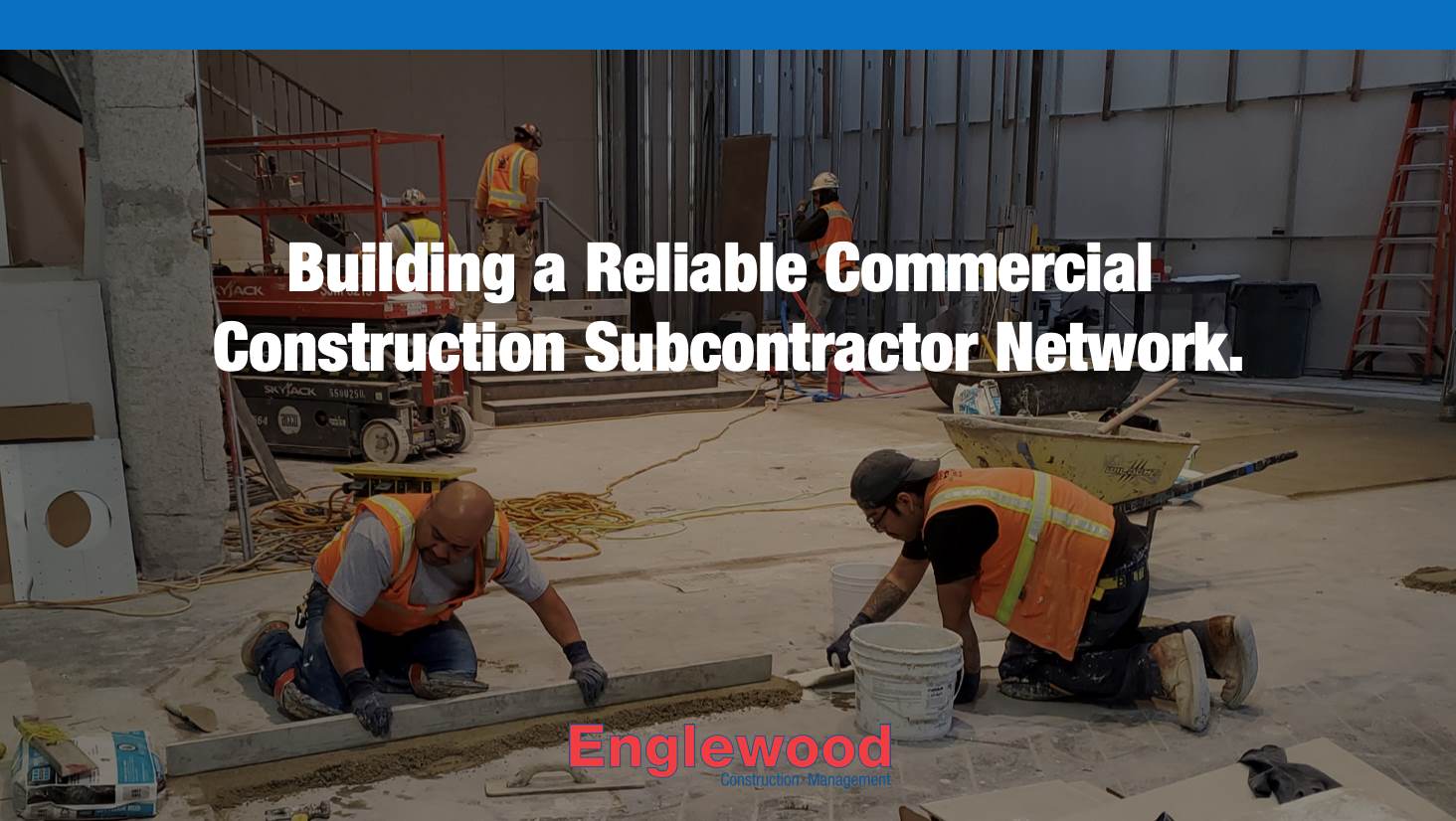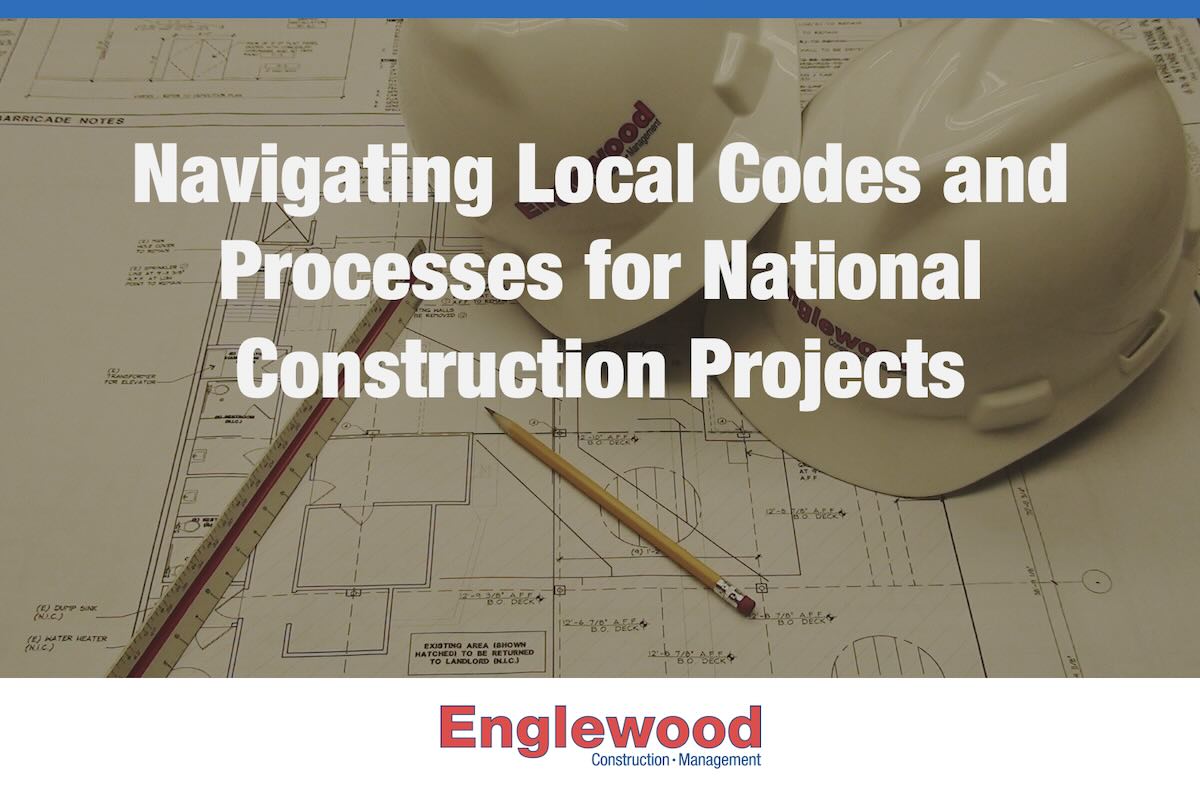9 Keys to Building a Reliable Commercial Construction Subcontractor Network
As anyone in the commercial construction industry knows, reliable, responsive, and skilled subcontractors are the lifeblood of our business. Your reputation and finished product as a national general contractor are only as good as the performance of your local subcontractor partners.
That’s why Englewood’s leadership team has prioritized building, vetting, and nurturing a 20,000+ tier-one network of experienced and project-tested subcontractors over the last 22+ years. We value subcontractor partners who deliver on their promises, communicate effectively, and respond promptly to our needs. We believe it enhances our project outcomes, mitigates risks, and supports the overall success of our national construction business.
Building out a reliable subcontractor network is no easy feat, and we recognize that knowing the bad subcontractors is as vital as knowing the good ones. Believe me, it takes some trial and error. However, it has been worth the effort to develop a thorough vetting process and understanding of what works best for our clients and the type of projects we manage. This has allowed us to perform at a high level, ensuring quality finished products, a maintained schedule, and being mindful of the budget.
Here are several of the essential qualities we look for when we choose a subcontractor for a project:
1. Stellar Reputations
For us, the most important factor when choosing a subcontractor for a project is a proven track record of performance.
One of the best sources of information on performance is other subcontractors. Our best referrals come from our most sophisticated and professional partners who like to work with other top-notch contractors. They are a fantastic resource.
Our project management system, Procore, allows us to classify subcontractors by category and rate their performance through internal analysis.
Our clients are also a resource for approved contractors whom they have worked with in the past. Again, a proven track record of performance is key, and so is client trust.
Testimonials and rating reviews — Google and BBB, for example — are another source for vetting new subcontractors.
2. Specialization
We generally select subcontractors who specialize and have extensive experience in specific sectors of commercial construction, such as restaurants, hospitality, senior housing, adaptive reuse, and retail. It’s essential to know the lay of the land.
We also believe in working with companies that are best-in-class in what they do. This is critical when it comes to ground-up excavation, concrete, and the MEP trades to all facets of carpentry or finished trades such as flooring and painting. This deep knowledge and experience contribute to the successful completion of specific project components.
3. Capacity
Before awarding any contacts, it’s essential to understand if the subcontractor has the capacity to manage their portion of the project, including crew size and the ability to meet deadlines and timelines.
This is why we ask for detailed qualifications on their bid proposals. This provides us with three things:
a) they have reviewed the project enough to understand their scope.
b) that all the scope is included in the proposal.
c) they have the required manpower to meet our schedule
Also, do they have a solid line of credit to furnish the required materials and equipment until each payout from the client is received? It matters. That is why we also ask.
4. Timely Project Completion
A critical component of our job as the general contractor is to adhere to project schedules and deadlines, ensuring that tasks are completed on time. We put a high value on subcontractors who have a record of being responsive to project timelines to help maintain overall project momentum and ensure timely project delivery. It has also helped us avoid lost time, extended schedules and cost overruns due to having to replace underperforming subcontractors.
5. Quality Workmanship
Quality matters to our clients. That’s why Englewood chooses subcontractors that consistently deliver high-quality workmanship, adhering to industry standards and best practices. Their attention to detail and commitment to excellence contribute to our construction project’s overall quality and durability.
6. Cost Savings
By minimizing delays and disruptions, we expect our subcontractors to help control project costs. Timely completion of tasks reduces labor expenses, prevents costly rework, and avoids project schedule overruns, ultimately maximizing project profitability. Our clients value this as well.
7. Risk Mitigation
We ask our subcontractors to actively address project issues and challenges, mitigating potential risks and minimizing the likelihood of costly delays or disputes. Their proactive approach to problem-solving helps maintain project continuity and reduces project-related uncertainties.
8. Enhanced Communication
Maintaining open lines of communication with our team and other project stakeholders is critical. We look for subcontractors who are responsive to inquiries, updates, and requests for information, foster collaboration, and ensure effective coordination throughout the construction process.
9. Adaptability to Changes
It’s vital to our team and clients that our subcontractor partners demonstrate flexibility and adaptability in responding to changes in project scope, specifications, or requirements. We work closely with them to accommodate adjustments and modifications while minimizing disruptions to the construction schedule.
Ultimately, Englewood is very proud of the long-term and successful partnerships we have built with our national networks of subcontractors. Their professionalism, reliability, and responsiveness continue to play a crucial role in delivering high-quality construction projects on time, within budget, and to the satisfaction of clients and stakeholders.
If you would like to learn more about Englewood’s successful approach to commercial construction projects or discuss your next initiative, reach out to us here.




